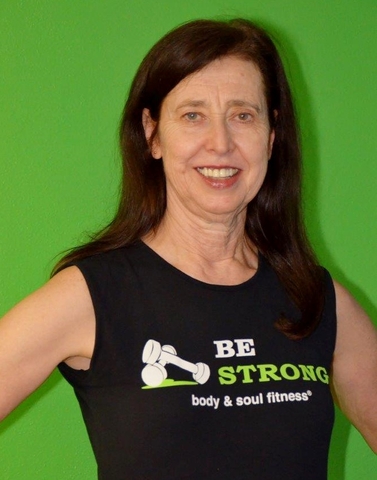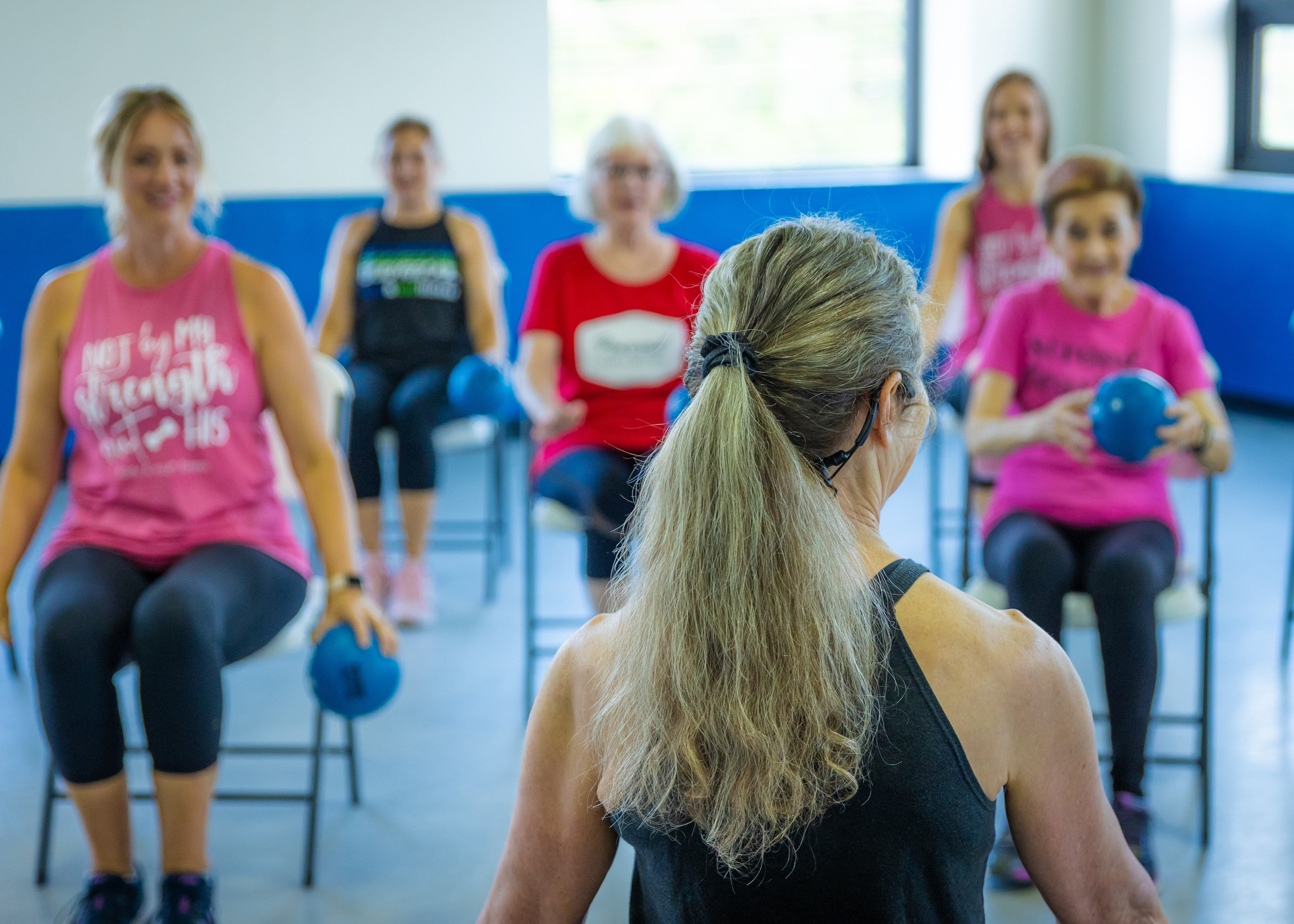changing fear of movement to joy of movement
“I know I need to move more. My doctor insists that I exercise, and I feel better when I’m not sitting so much. But I am afraid of falling. How can I exercise and stay safe? How do I pick from all of the exercise offerings out there? What is right for me and what can I stick with and actually enjoy?”
First, know that fear of falling (or basiphobia) is normal. According to Harvard Health, “about one third to one half of older adults are concerned enough about potential falls that they have begun to restrict or avoid activities that would be beneficial for their health.” Unfortunately, this movement restriction or avoidance actually compounds the fall risks. And this fear is keeping many of our seniors and a growing number of our younger population from exercise or daily activity necessary to maintain or improve the body.
It is rarely too late to start exercising. Our bodies are so wondrously and perfectly made. Short of acute injury or irreversible disease, they can be strengthened. At any age and from any condition, we can improve muscle mass, balance, stability, and improved quality of life. Our tissues and bones can regenerate, but that can only happen with movement.
So how do you pick an exercise program or a fitness professional who can address and understand these fears and offer exercise opportunities that will keep you safe, get you moving, and address what may be causing those fears?
As you look at your options and try out different group fitness classes, consider these things:
1) Instructor credentials. Is the Instructor qualified? As in most professions, most fitness programs and organizations require fitness Instructors to be certified by one of the nationally accredited certifying organizations and then re-certified every two years. In those 20 or so units of education needed for recertification, Instructors usually select courses that help them specialize in certain areas. Ask an Instructor about his/her certification as well as specialized continuing education that addresses your issues.
2) Does the Instructor listen to you? Does the Instructor understand your fear of falling and the source of that fear? About one third of seniors fall annually, so the fear of falling is very real. The fitness professional will not make light of this and will ask questions to understand the source of the fears. Have you fallen or have you observed a loved one fall and seen the dire consequences? Is there a health reason for your fear? Has the Instructor listened and asked enough questions to understand this fear in order to keep you safe and help address the fear?
3) Does the Instructor observe you in and outside class? Exercise professionals must observe postural imbalances, reduced range of motion, unusual gait patterns, and any verbal or body language indicating pain. Does your Instructor observe and offer you modifications? Does the Instructor offer corrections that help keep you safe and achieve your exercise goals?
4) Does the Instructor educate me? Instructors know that their students/clients are more motivated and execute moves better when they understand what the movement is trying to accomplish. Look for an Instructor who explains things and does it in language that relates to your life and your issues.
5) Does the Instructor and the exercise programming meet me where I am? Yes, every fitness professional would love to see all of their students/clients exercise in optimal weight bearing mode - standing position. But, movement and significant improvement in balance, muscle development, and cardiovascular capacity can happen in the seated position. Does your Instructor or this particular exercise program offer you a safe starting point?
6) Does the exercise session motivate me? Nearly everyone enjoys the social aspects of group exercise. For those who have basiphobia, more motivational tools may be necessary to help conquer the fears. Are there things about this class that make the time pass quickly, that you look forward to, that help you forget your fears, that make your exertion easier and even fun? Is this class community supporting and encouraging, and does it keep you accountable?
7) Be wary of Instructors who offer medical advice. Unless an Instructor also holds medical credentials and certification, be wary of any medical diagnostic or prescriptive comments from a fitness Instructor. All nationally certified fitness professionals must adhere to a “scope of practice” standard which makes it unethical and dangerous to dispense medical advice or any kind of advice outside the exercise profession. However, treasure an Instructor who observes you and suggests that you check in preemptively with your medical team on issues that may not be apparent to you. Your Instructor is a valuable part of your health care team and often sees you more frequently. Their referrals for medical attention have been known to save lives.
There are several high quality group fitness programs available that can help turn fear of movement (falling) into joy of movement. Our organization, Body & Soul® Fitness, addresses all of the above issues. Body & Soul® Instructors must be certified by one of the nationally accredited group fitness certifying organizations. Body & Soul® provides comprehensive and ongoing Instructor training, offering ACE continuing education credits for fitness professionals that are holistic in nature. Their training is delivered by recognized professionals and incorporates cutting-edge research from the fitness world as well as elements of other medical professions relating to holistic kinesiology.
Body & Soul® has six exercise programs, literally “something for every body.” All of the programs provide options so that people of wide-ranging ability can participate. Two of the programs are specifically designed to address the fear of falling: 1) Our GOLD™ program offers both a seated and a standing choreographed workout that includes cardio, strength training, balance, and stretching. Fusion balls are used to increase proprioception, intensity, coordination, and fun. 2) Our Longevity FIT360™ program is an unchoreographed workout focusing on cardio, strength training, balance, coordination, and stretching. Not only is our training informed by professional expertise from relevant fields, but our programs and workouts are also informed by relevant research, organizations, and leading experts. Our classes are “where faith and fitness meet™” and where warm, enduring sweat communities exist and lifelong friendships are formed. All of our workouts feature encouraging, uplifting Christian music which engages both body and soul in transforming fear of movement into joy of movement.
For more information on Body & Soul®, how to become an Instructor, where to receive training, how to find live classes across the world or On Demand classes on Body & Soul® FitTV™, go to www.bodyandsoul.org
by Ruth Ann Dreyer
Edmond, OK
 Ruth Ann Dreyer, Ph.D,
Ruth Ann Dreyer, Ph.D,ACE GFI certified and ACE presenter
Egoscue Postural Alignment Specialist
Body & Soul® Instructor, Regional Director, and Program Director for GOLD™
Body and Soul® Fitness is an international Christian fitness organization that trains and equips instructors to lead a variety of group fitness programs including choreographed aerobics-style Cardio Strength & Flexibility™, cardio dance style Dance Blast™, free-weights-focused Power Strength™, boot camp style FIT360™ and Longevity FIT360™, and GOLD™ - lower impact programming for participants that are pregnant, have weight challenges, injuries, or other medical conditions. These exercise classes meet in church gyms, community centers, gymnasiums, parking lots, schools, etc. across the United States, Europe, and Africa. In-person and virtual fitness classes are available.
Key words: Christian fitness, women's exercise classes, group fitness, dance aerobics classes, Christian group fitness, Christian fitness app, FitTV, Body & Soul, Body and Soul, fitness instuctor training, low impact exercise







